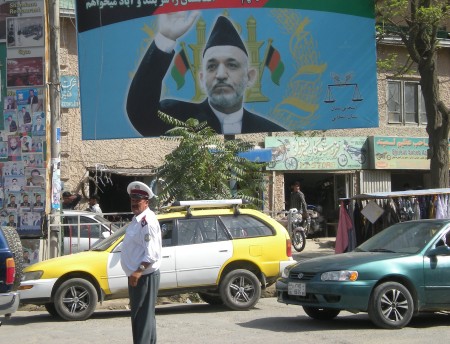
Media gags, reports of sporadic attacks, Taliban threats to cut off ink-stained fingers – excitement and anxiety abound as voting in Afghanistan draws to a close.
Several commentators have warned that a contested outcome – most likely one where incumbent Hamid Karzai does not win the first round with 51 percent of the vote – might result in a constitutional deadlock and a period of heightened instability. Others, however, have lauded the gains that his main opponent, former Foreign Minister Abdullah Abdullah, has made as a sign of progress in an open and fair election process. The election will either heal or deepen rifts in the Afghan polity that have been exposed by the failure of reconstruction efforts and the looming Taliban threat.
But what is the situation on the ground? Are voters heeding Karzai’s call to come out and vote? Is democracy, and the hope of a better tomorrow, inspiring Afghans to take the risk and get that ink stain on their finger?
- The ISN provides insights into the election process through Anuj Chopra, our reporter on the ground in Afghanistan. In a piece on the election, Anuj highlights the fears and anxieties of many voters who have succumb to the Taliban’s intimidation-campaign.
- Kai Eide, special representative for the UN secretary general writes for RFE/RL that this election, although difficult, could mark a turning point in the reconstruction effort and the fight against the Taliban. Increased confidence in the democratic process will inspire change and solidify a new strategic vision for the country, he argues.
- Pictures, courtesy of Monsters and Critics show the election process unfolding– ink-stained fingers and all.
- This Crisis Group report examines the technical, political and security challenges associated with the current elections.

